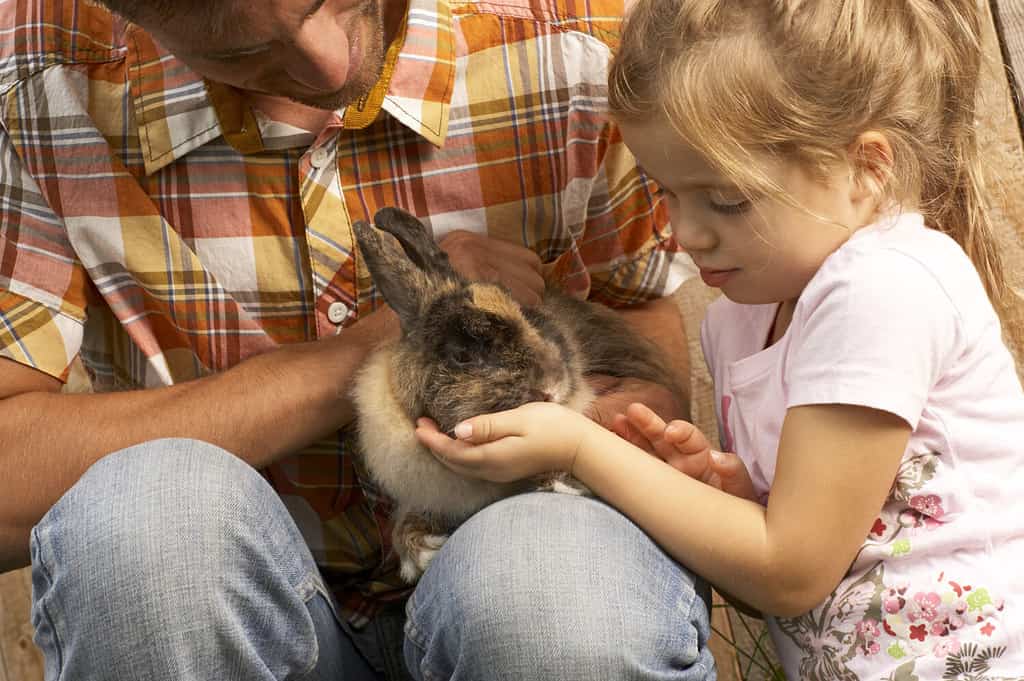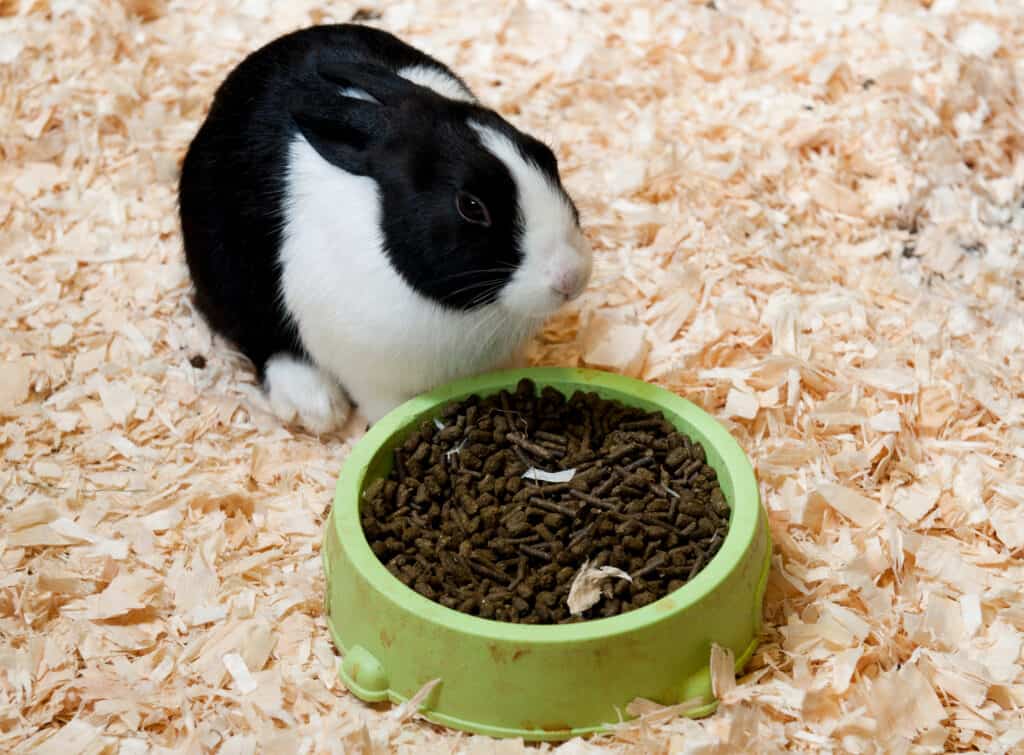Getting your rabbit neutered or spayed can improve their health and extend their lifespan, preventing various health conditions that can develop as they age. Furthermore, it can curb aggressive behavioral problems. But it is understandable if you are nervous about the surgery, especially if you don’t know what to expect. So, here is a guide on when to neuter or spay your rabbit, including five steps to follow.
When to Neuter or Spay Your Rabbit
If it’s in your control, the best time to neuter or spay your rabbit is before behavioral issues or health concerns arise. Therefore, the surgery should be performed while your rabbit is still young. Veterinarians prefer to spay or neuter rabbits when they reach sexual maturity. Females sexually mature at around four months old, and males between 8 and 12 weeks. However, some veterinarians prefer to wait until rabbits are six months old, depending on their breed, size, and health.
5 Steps to Follow When Spaying or Neutering Your Rabbit
Once you are ready to spay or neuter your rabbit, there are a few steps to follow to ensure the process goes smoothly.
1. Find the Right Veterinarian

You need to find a veterinarian that specializes in small animals and rabbits. They are often called exotic animals or small mammal veterinarians.
©Altrendo Images/Shutterstock.com
Rabbits differ from dogs and cats, and their medical needs require an expert. As a result, you can’t just take your bunny to any vet to get fixed. You need to find a veterinarian that specializes in small animals and rabbits. They are often called exotic animals or small mammal veterinarians. The best way to find one of these specialists is to contact your local animal shelters, which deal with all sorts of pets and will probably know who to recommend.
2. How to Prepare For Neutering or Spaying

If your rabbit is over two years old, the veterinarian may also perform a blood test during this consultation to ensure there are no underlying conditions that can cause problems during the surgery.
©Mary Swift/Shutterstock.com
Veterinarians typically require you to bring your rabbit in for an initial appointment before scheduling the surgery. This allows the specialist to assess your rabbit’s health and explain anything you need to know before the surgery. It is also the perfect opportunity to ask about anything that may be worrying you. If your rabbit is over two years old, the veterinarian may also perform a blood test during this consultation to ensure there are no underlying conditions that can cause problems during the surgery.
Cost
You also need to prepare for the cost of surgery if your pet insurance does not cover it. The procedure can cost between $200 to $500. The price depends on location and the veterinarian in question, as they can charge whatever they like. In fact, many veterinarians aren’t transparent with their fees, so you have to inquire about the exact cost beforehand. In addition, the price of neutering a male bunny is usually less than that of a female. This is because surgery on males is easier and shorter than on females. Furthermore, you need to budget for the pain medication after the surgery, which can cost between $50 and $500. It also costs extra if your rabbit stays at the veterinarian’s office overnight for observation.
Budget-Friendly Options
Not many people can afford private veterinary care for their beloved pets due to the price of living these days. However, there are budget-friendly options out there, including for spaying and neutering. If you fall into a certain income bracket, you may qualify for low-cost medical treatment for your rabbit. For example, many shelters offer lower prices to people who earn less than $55,000 a year. Unfortunately, this usually means that there are long waiting periods. But, if you earn more than $55,000 a year but still require discounted medical care, you can contact your local animal shelters or the humane society with a medical clinic. They may be able to offer you the surgery at a reduced cost. Additionally, if there is a House Rabbit Society chapter in your state, they are a great resource for information on low-cost rabbit specialists in the area.
What to Feed Your Rabbit Before Surgery
Unlike dogs and cats, you must never fast your rabbit before surgery; feed them like you normally do. Rabbits are unable to vomit, and their ability to make it through surgery depends on having food moving through their system. If you don’t feed them before the procedure, it can make recovery a lot less likely. If your veterinarian asks you to fast your rabbit before surgery, find another one because they do not know what they are talking about.
The hospital staff might ask you to withhold food before the procedure, but it may be a mistake as this is standard protocol. However, ask the staff member to consult with the specialist for clear instructions for rabbits.
3. Insist On a Single-Day Surgery

It is best to schedule the surgery right before the weekend if you have a typical 9 to 5 so you are able to stay home to monitor and care for your rabbit for a couple of days while it’s recovering.
©Ellethwen Rue/Shutterstock.com
Where possible, plan for a single-day surgery where your rabbit goes in first thing in the morning so they can come home with you that evening. It is easier to monitor them at home overnight to ensure they are eating and recovering well. However, if your rabbit is showing signs of concern or not eating, the veterinarian will insist on keeping it overnight. Alternatively, they will send it home with you, along with specific instructions, but if your bunny has not eaten by morning, it needs to return.
It is best to schedule the surgery right before the weekend if you have a typical 9 to 5 so you are able to stay home to monitor and care for your rabbit for a couple of days while it’s recovering. While your rabbit won’t be acting like itself, you will be able to tell if it is not healing properly, and if the simplest thing seems wrong, rush your bunny back to the vet.
4. Bring Your Rabbits Food Along

When your bunny wakes up after surgery, the sooner it eats, the better. But, eating food they are not used to can mess with their digestion, so it’s better to eat their own food.
©Luis Santos/Shutterstock.com
When you take your rabbit to get neutered or spayed, take some of their regular pellets to the veterinarian’s office. When your bunny wakes up after surgery, the sooner it eats, the better. But, eating food they are not used to can mess with their digestion, so it’s better to eat their own food.
5. Caring For Your Rabbit After Surgery

Looking after your rabbit after getting spayed or neutered is relatively easy, as they need to recover on their own. The only thing you need to do is ensure they have plenty of food, water, and space.
©nigel baker photography/Shutterstock.com
Looking after your rabbit after getting spayed or neutered is relatively easy, as they need to recover on their own. The only thing you need to do is ensure they have plenty of food, water, and space. However, you do need to monitor them. Therefore, keeping them in a carrier or small enclosure for the first few days after the procedure is best to restrict their movement. Much like cats or dogs, your rabbit will likely need to wear a cone after surgery to keep them from biting their stitches, but consult with your veterinarian first.
Thank you for reading! Have some feedback for us? Contact the AZ Animals editorial team.








